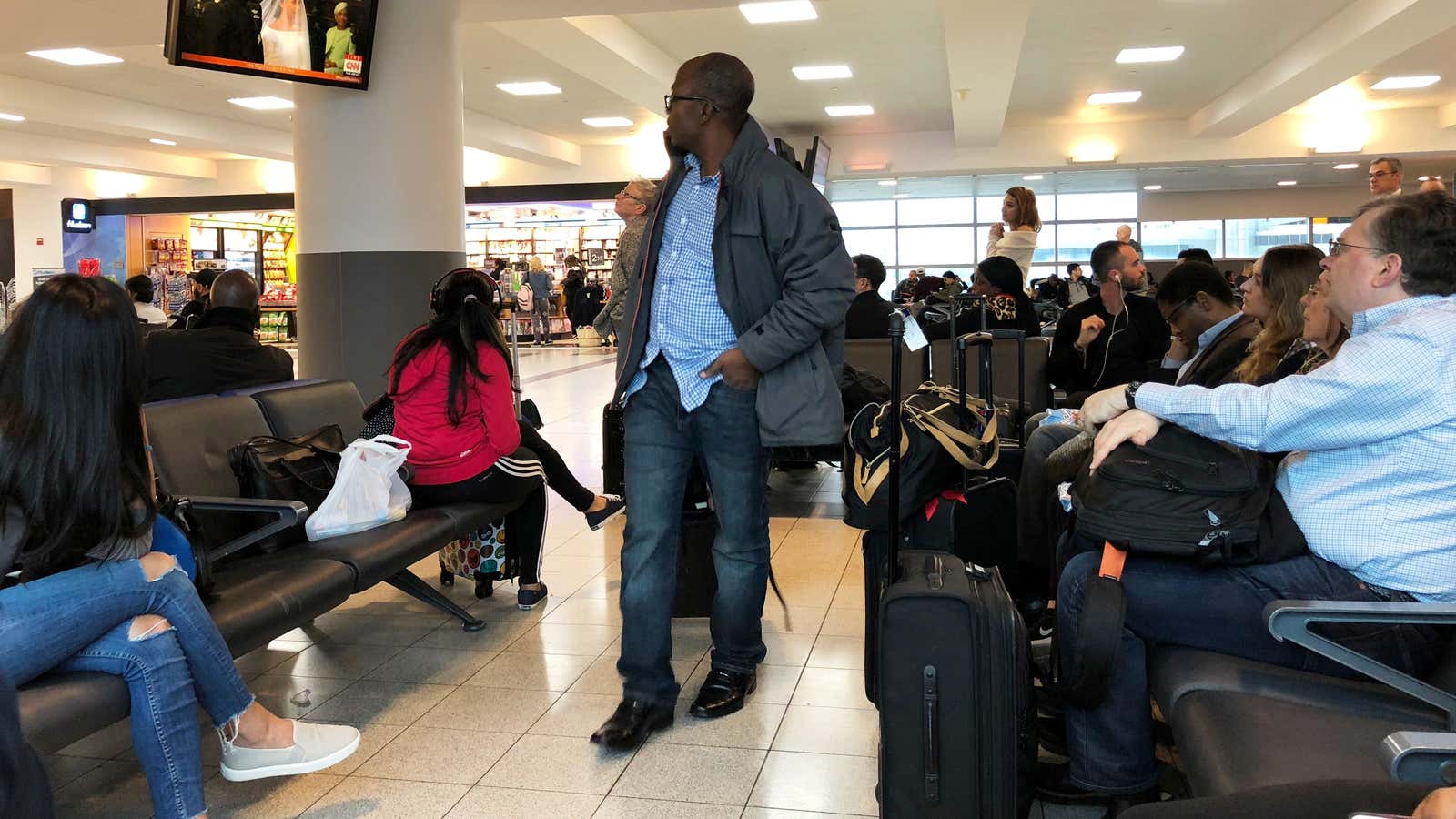Schools are closed; events and conferences are cancelled; face masks are suddenly hundreds of dollars (or simply unavailable). With tens of thousands of reported cases of the new coronavirus in more than 35 countries, it’s not unreasonable to be second-guessing that long planned vacation. So, should you cancel your trip? And if so, how much is it going to cost you? And if you’re considering booking travel, what do you need to know?
The official word
The Centers for Disease Control recommends avoiding all nonessential travel to China, Iran, South Korea, and Italy, which have been issued with a Level 3 Travel Health Notice. If you’re an older adult, or have a chronic medical condition, the agency suggests considering postponing your Japan trip for the time being. Keep an eye on these advisories, especially if you’re traveling internationally: The situation is moving rapidly, and official advice may change.
If you ignore this advice, or cannot postpone your travel, you should probably prepare for a period of quarantine on your return. The UK’s Department of Health and Social Care requests travelers who have recently been to China’s Wuhan city and Hubei province, Daegu or Cheongdo in South Korea, Iran, or any Italian city under containment to place themselves in self-isolation on their return. US citizens and permanent residents returning home from China will be screened by CDC staff and, if they have no symptoms, will face “some level of restrictions on their movements” for two weeks from when they left China under a federal, state or local quarantine order.
What to do if you need to cancel your trip
If you have to change or cancel your trip, whether it’s because you’re feeling unwell or because you’d like to avoid any undue risk, here’s what you need to do.
First, check the policies of your hotel, airline, or travel company. Many have already adopted more flexible policies than usual—JetBlue and Alaska Air have suspended all change and cancel fees for flight bookings made between Feb. 27 and March 11 for travel through June 1. American Airlines and Delta have also relaxed some of their fees. Hotel chains will often allow guests to cancel reservations up to a couple of days ahead of the trip, as will car rental companies. With Airbnb, the cancellation policy is set by the home owner rather than the company itself. If it’s the airline or cruise company cancelling your trip, you are very likely to get a refund: in almost all cases, airlines refund passengers the full value of their cancelled flight. You may also be offered to be rebooked on to a flight with another carriers, or have the opportunity to postpone your trip.
If your airline will not allow you to cancel your trip, check the fine print on your travel insurance. In the vast majority of cases, you may be out of luck: if you’re insured through your credit card, it’s unlikely you’ll be able to have your trip reimbursed. Even top-level cards, such as the Chase Sapphire Reserve, explicitly state that they do not cover interrupted or cancelled trips due to “your disinclination to travel due to an epidemic or pandemic.” If you’re cancelling travel due to illness, or because your doctor or local authority has advised you to stay home, you may have more luck seeking reimbursement from your card: The Platinum Card from American Express will cover cancellation or interruption costs due to a “quarantine imposed by a physician for health reasons,” for example.
Should I buy travel insurance?
It depends. So far as cancellations go, most travel insurance will give no more protection than travel booked on a credit card. That said, if you do take your trip, they can provide valuable protection in a wide variety of situations, from a damaged rental car to potentially high medical costs in the event of illness.
If you want something more wholesale and flexible, consider purchasing a “cancel for any reason” policy, which will generally reimburse up to 75% of your expenses. These tend to cost as much as 40% more than regular insurance, but leave you free to change your mind—if you don’t mind footing some of the bill. Comparison sites such as The Points Guy have good guides to some of the better options.
How to travel safely
Outside of affected areas, the World Health Organization does not advise cancelling travel or imposing any kind of bans.
Still, now more than ever, it’s critical to keep a close eye on hygiene: washing your hands with soap and water, covering your nose and mouth when sneezing or coughing, and touching your mouth, eyes, and nose as little as possible. You do not need a medical mask, but you might want to carry antiseptic wipes with you, to give surfaces such as tray tables or armrests a once-over. Portable hand sanitizer is also useful, especially if you’re somewhere where sinks and soap are hard to come by. Don’t worry too much about the recycled air in your cabin, either: The vast majority of planes are fitted with High Efficiency Particulate Air (HEPA) filters, which entirely refresh the air every two to three minutes.
It’s also worthwhile taking extra care of your health—getting plenty of sleep, staying hydrated, and making sure you’re getting enough Vitamin C and D. If you haven’t already got your flu shot, it’s not too late.
